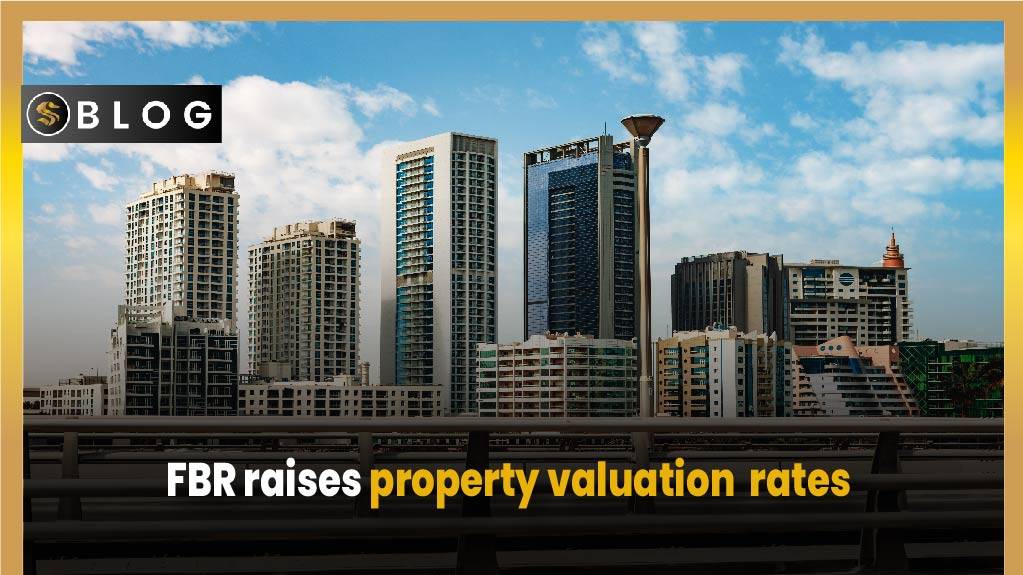
Share This Story, Choose Your Platform!
FBR Raises Property Valuation Rates by 75% in 56 Cities
In a significant move affecting real estate across Pakistan, the Federal Board of Revenue (FBR) has announced a raise in property valuation rates for immovable properties across 56 cities, effective November 1, 2024. This change, aiming to align official valuations with market values, will impact property transactions in various urban areas and is expected to affect the real estate market as well as buyers and sellers.
Why FBR Raises Property Valuation Rates?
The primary motivation behind this increase is to reduce the gap between the FBR-assessed value and the actual market price of properties, a difference that has often led to tax under-reporting. With properties now valued at 75% of their real market value, the FBR aims to achieve greater transparency and boost revenue collection, strengthening the country’s economy. Property transactions and holdings have often been under-reported, resulting in lower-than-expected tax collections and, consequently, reduced funds for national development.
You May Also Read
The Risks of Commercial Real Estate Investment
Impact on Property Buyers and Sellers
For buyers, higher property valuations mean increased transaction costs, as taxes and fees calculated on these values will rise. This may influence buyer decisions, particularly in urban centers where demand for properties is high but affordability is a concern.
For sellers, the raised valuation could increase the tax burden, particularly for those who purchased properties at lower valuations years ago. However, the new rates may encourage more transparent property transactions, as the valuation system will now more closely reflect the actual value of assets in the market.
Implications for the Real Estate Market
Experts suggest that the adjustment may initially slow down the market, as buyers and sellers adapt to the increased costs associated with property transfers. Additionally, it might lead to a rise in property prices, as sellers may attempt to pass on the increased costs to buyers. On the positive side, however, this adjustment is expected to result in a more regulated and transparent property market, where valuations better align with actual market prices.
This increase is also anticipated to impact both the residential and commercial property sectors. For real estate developers, the higher valuation may increase project costs, potentially influencing property prices in under-construction and newly launched projects.
A Step towards Economic Stability?
While the change might be challenging for some in the short term, aligning property valuations with market rates is seen as a necessary step toward economic transparency. The increase in property tax revenue could boost government finances, leading to more funds available for development projects and services.
What’s Next?
As this change takes effect, experts encourage property stakeholders to seek professional advice on navigating these adjustments. For those in the process of buying or selling, understanding the updated valuations and preparing for the increased costs can help mitigate financial surprises.
The FBR’s decision marks a new chapter for Pakistan’s real estate industry, signaling a commitment to increased regulatory oversight and fiscal transparency. While the impact of these higher valuation rates will unfold over time, the move is a step toward a more balanced, documented, and revenue-generating real estate market.




